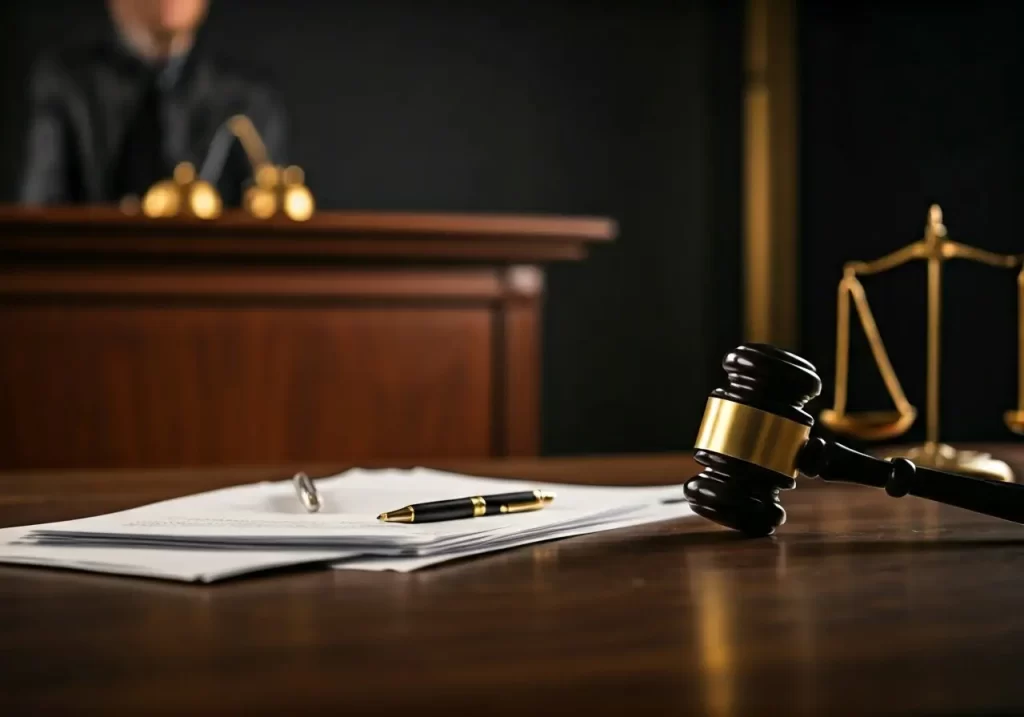Facing a DUI charge can be overwhelming, and finding the right attorney is essential. To ensure you have the best legal representation, it’s crucial to ask the right questions before hiring a South Jersey DUI attorney. This guide will provide you with key inquiries to make the process easier and more informed.
1. Understanding Their Experience and Expertise
Start by inquiring about how long they have been practicing DUI law and how many cases they’ve handled. Experience often translates to better understanding and navigation of the legal system. Knowing specifics about their career can highlight their success in handling challenging DUI cases. You might also want to know if they are familiar with the particular laws and regulations in South Jersey, as localized expertise can make a significant difference in the outcome of your case. For instance, New Jersey DUI Laws are intricate, requiring a seasoned attorney to maneuver effectively.
Furthermore, asking how they keep up with changes in DUI law is a great way to assess their commitment to providing updated advice. Considering how laws evolve, and how technology like breathalyzers might change standard procedures, an attorney should consistently update their knowledge. Continuing legal education and participation in related webinars or seminars is a sign of dedication to their craft.
2. Assessing Their Approach to Handling DUI Cases
Every attorney has a different style and approach. Understanding how they plan to handle your case can help determine if they align with your expectations and needs. Does the attorney prefer negotiating plea deals, or do they have a reputation for taking cases to trial? Ask about their trial experience and results, particularly in DUI defenses, as this might give you peace of mind regarding their capabilities.
Moreover, understanding their approach to evidence collection and usage is critical. Do they have a systematic way of scrutinizing the prosecution’s evidence? Some attorneys might have forensic experts or investigators they routinely work with to strengthen their defense strategies. Their ability to scrutinize field sobriety and breathalyzer tests using advanced legal techniques can drastically alter the course of your case.
3. Fees and Payment Structures
Discuss the attorney’s fees, payment plans, and what services are included. Understanding the financial aspect is crucial in your decision-making process. Most attorneys have different pricing structures, such as hourly or flat rates, and it’s important to determine what works best for your budget. Inquire if they offer any flexible payment plans to accommodate clients who may need financial assistance.
You should also be clear about any additional costs that might arise during the case. Some attorneys charge extra for expert witnesses or additional documentation. It’s beneficial to have a detailed agreement that outlines all potential costs, so there are no surprises when the bill arrives. Ensure you understand their billing practices completely before committing.
4. Exploring Case Outcomes and Success Stories
Requesting information on previous case outcomes similar to yours can provide insight into their ability to handle your situation effectively. Understanding their track record can give you a sense of the lawyer’s proficiency in defending DUI charges. Successful case examples can be a window into their strategy and adaptability in different situations. Reviews and client testimonials can also offer additional perspectives on their professionalism and client care.
5. Local Knowledge and Connections
A South Jersey attorney with local connections can be beneficial in understanding regional legal practices and potentially navigating your case more smoothly. Local attorneys will likely have established relationships with local judges and prosecutors, which can be advantageous when negotiating plea deals or during trials. Consider asking if they are familiar with the court personnel you might encounter throughout your case proceedings.
6. Understanding Potential Penalties and Consequences
Ask about the possible penalties for your DUI charge and how they plan to mitigate them. An attorney should provide a realistic outlook on your case. Understanding the specifics of what a conviction could mean for your personal and professional life is vital. This includes potential license suspension, fines, and the implications on future employment opportunities. They should also discuss how these penalties might differ if aggravating factors are present.
7. The Importance of Communication
Determine how often and in what manner the attorney will communicate with you throughout the process. Clear communication is key to a good attorney-client relationship. Will you be receiving updates via email, calls, or regular face-to-face meetings? This is important as it sets the tone for transparency and comfort. Frequent updates can alleviate stress and uncertainties around your legal process, allowing for a smoother experience.
8. Availability for Your Case
Ensure the attorney has enough time to dedicate to your case. Discuss their current caseload and availability to prevent any potential scheduling conflicts. An attorney juggling too many clients might not offer the level of personalized attention your case requires. This can influence how thoroughly your attorney prepares and responds to new developments, significantly impacting your case’s outcome.
9. Their Team and Resources
Inquire about who else will be working on your case and their roles. Having a seasoned team can be an advantage in complex situations. Knowing the credentials of paralegals, assistants, or any other specialists involved can boost your confidence in the firm’s collective ability to manage your case. A well-rounded team can provide a support system that ensures all aspects of your case are fully addressed.
10. Offering a Personalized Strategy
Find out if they will tailor their strategy to fit your specific needs and circumstances. Each case has its unique aspects that should be considered. A cookie-cutter approach won’t adequately address the nuances of your situation. Discussing personal elements may be crucial for achieving the best possible outcome for your case. Comprehending this can provide comfort and assurance that your defense strategy is designed with your interests in mind.


